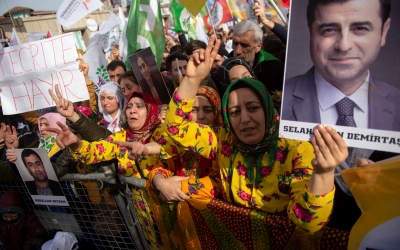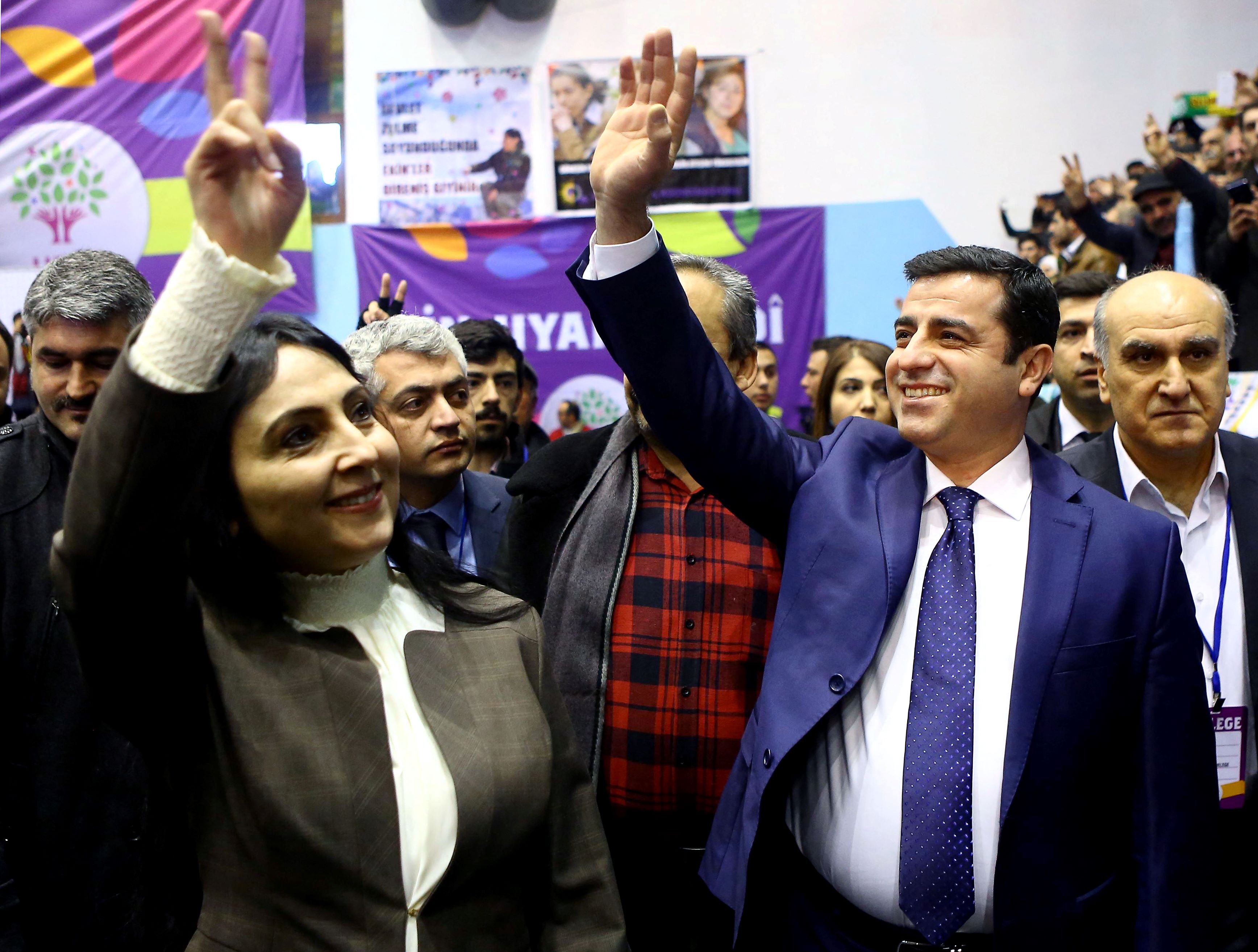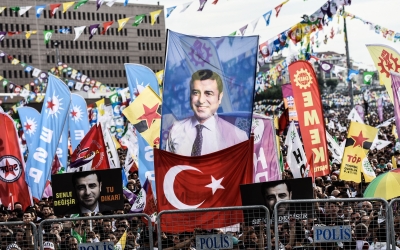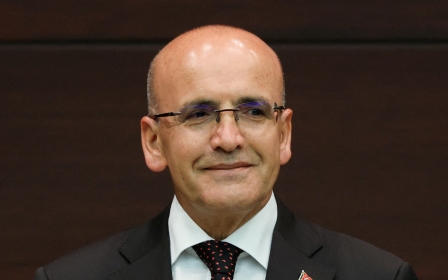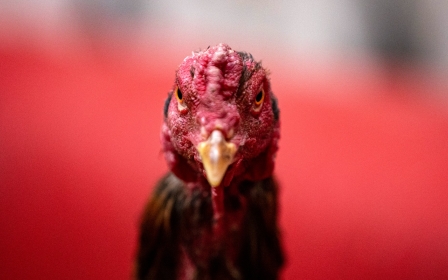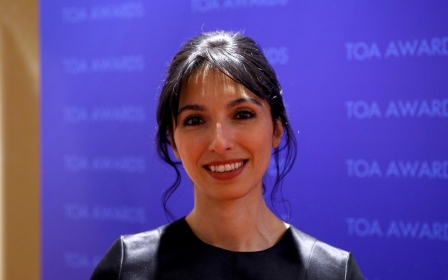Turkey: Jailed HDP leader says backing Kilicdaroglu was 'wrong'
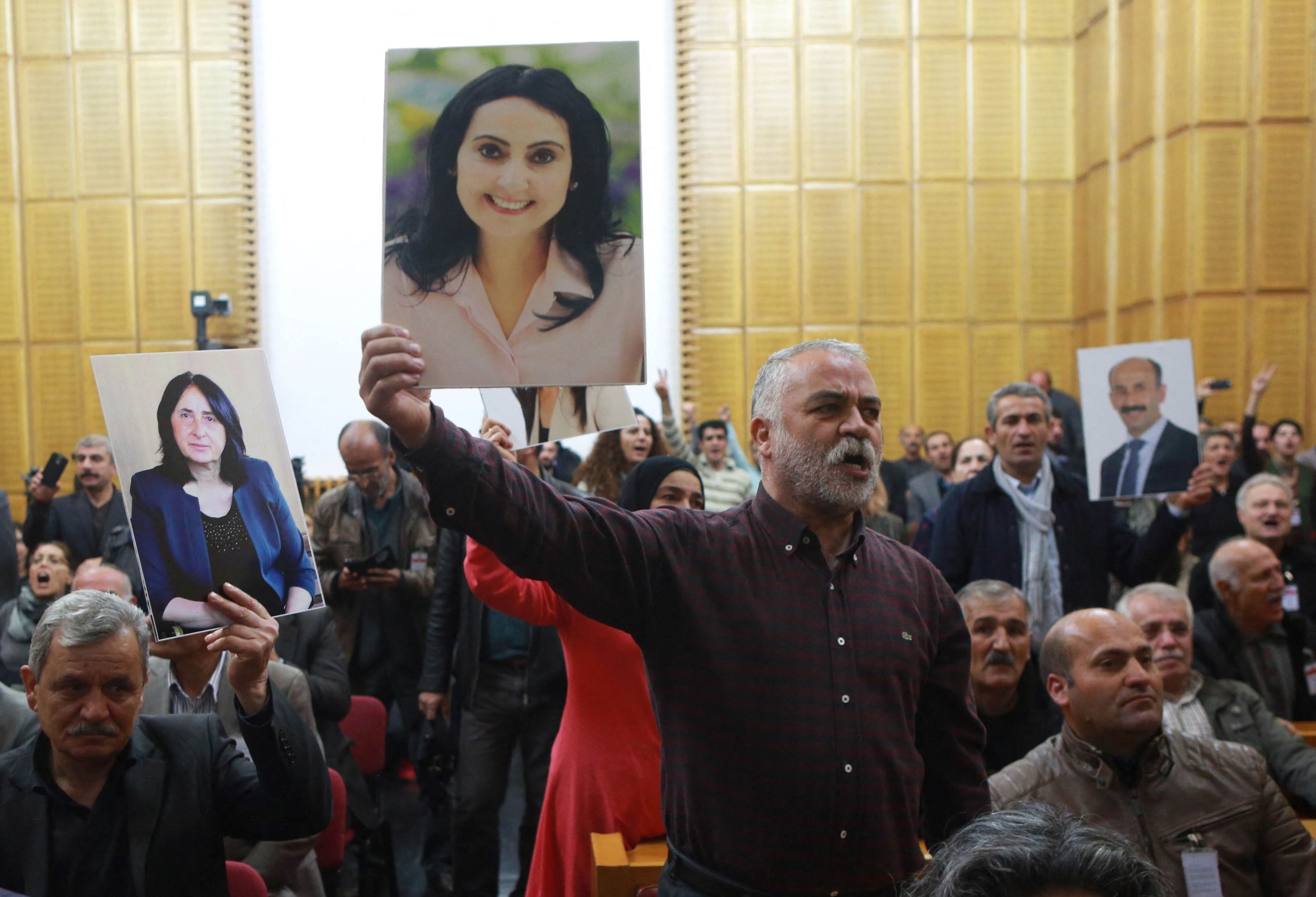
The imprisoned former co-leader of the pro-Kurdish Peoples' Democracy Party (HDP) has said it was the "wrong choice" to back Kemal Kilicdaroglu in Turkey's presidential elections.
Figen Yuksekdag made the comments in a letter to Middle East Eye from her cell in Kandira Prison.
She has spent more than six years in jail on terrorism and incitement charges after being arrested along with her HDP co-leader and former presidential candidate Selahattin Demirtas.
In last month's presidential elections, her party threw its weight behind Kemal Kilicdaroglu, leader of the main opposition Republican People's Party (CHP), instead of fielding their own candidate.
Although Kilicdaroglu kept the HDP at a distance for fear of offending his Turkish national allies, his apparent commitment to enforce the European Court of Human Rights (ECHR) rulings demanding the release of Demirtas and Yuksekdag's gave hope to many of their supporters.
New MEE newsletter: Jerusalem Dispatch
Sign up to get the latest insights and analysis on Israel-Palestine, alongside Turkey Unpacked and other MEE newsletters
But on 28 May, after an unprecedented second round of presidential voting, President Recep Tayyip Erdogan once again secured victory and any hope for freedom under Kilicdaroglu was dashed.
Yuksekdag said she believed supporting the CHP leader instead of fielding their own presidential candidate was the "wrong choice".
"HDP politicians in prison, including myself, advocated for running our own candidate and consolidating our power by entering the parliamentary elections with a single list," she said.
"The 2023 elections were a unique process for the HDP [and] its inability to focus on its own strength and accumulated experience resulted in the wrong choice of Kilicdaroglu."
As the party faces a closure case at the Constitutional Court, the HDP contested the election under the banner of the Green Left Party (YSP) in coalition with the small Workers Party of Turkey (TIP).
Although the party ended up with fewer seats than in the 2018 election, it remains the third-largest party in parliament.
Yuksekdag added that she and others in jail had attempted to put forward a female presidential candidate chosen from amongst the imprisoned politicians, but this had failed due to late preparation and "weak determination" on the part of the HDP.
Yuksekdag also isn't entirely convinced a victory for the CHP leader, who upset many Kurds and leftists by playing to ultra-nationalist and anti-refugee sentiments in the second round of voting, would have meant her release.
"I could never give a confident answer to questions in this direction, because the damage done to justice and democracy during the twenty-one years of [President Erdogan's] rule is severe," she explained.
"We knew that this could not be recovered in a short period of time."
'As bad as ever'
Compared to the "Kurdish Obama" Demirtas, Yuksekdag has a lower profile internationally, despite having held a position of equal authority in the HDP, which requires male and female joint leadership for most official roles.
Born to what she has described as a conservative and nationalist family of ethnic Turkmens - a nomadic Turkish minority - she was involved in women's rights and socialist activism before co-founding the Marxist-Leninist Socialist Party of the Oppressed (ESP) in 2010.
'Prison conditions are as bad as ever. The number of prisoners is increasing every day and the conditions are getting worse'
- Figen Yuksekdag
In 2014, she and her party merged with the HDP.
That same year she was elected co-leader and became the Turkish face of what was largely seen as a pro-Kurdish party, in spite of its leftist credentials.
The HDP's decision to support Kilicdaroglu in last month's elections - which many had predicted might unseat Erdogan for the first time in two decades - was controversial, both in the party and amongst Kilicdaroglu's other supporters.
Nevertheless, she concedes, an opposition win could have given the courts scope to implement the ECHR ruling.
"Prison conditions are as bad as ever. The number of prisoners is increasing every day and the conditions are getting worse," said Yuksekdag.
"There is also a special category of prisoners that we define as political prisoners. This category, which includes us, is subject to special isolation and pressure.
"A convict who has committed murder is released before a politician who is running a political party."
Yuksekdag and Demirtas were arrested in 2016 along with other HDP officials on charges of terrorism. Their detention was extended two years later with added charges of incitement to terrorism.
Big changes needed?
The HDP is set to hold an extraordinary congress in the autumn to plan a way forward.
Local elections are set for 2024, and the party's current leaders Pervin Buldan and Mithat Sancar have mooted the possibility of running again as the YSP.
According to local media, a "big change" is expected at the congress, which will also discuss potential new leadership and how to deal with the ongoing closure case.
"We are clearly experiencing difficulties," admitted Yuksekdag.
She said the "criminalisation attacks against our party" and that the "racist-nationalist policies of Erdogan" and his far-right political allies, the Nationalist Movement Party (MHP), had undermined their efforts.
"The other side of the issue is about us. Although a party like the HDP was founded 10 years ago, [and] includes various leftist, socialist, ecologist, and democratic components of Turkey, the Kurdish axis has always been strong," she said.
Despite attracting support from Turkey's social movements - such as LGBTQ+ advocates, environmental campaigners, and more radical labour activists - the HDP has had mixed results in trying to secure a broader coalition, not least as a result of the continuing strength of Turkish nationalism across the country and the widespread perception of the HDP as a proxy of the outlawed Kurdistan Workers Party (PKK).
"The fact that the Kurdish problem has not been solved on a democratic basis has always been an important issue for us - it still is," said Yuksekdag.
"But on the other hand, it also strengthened [our] tendency not to go beyond the area [we] knew and were active in. Even if it is difficult, we have to develop a more stable activity in the west, north, central, and southern regions of Turkey, including the urban poor and labourers."
'Surrender is not an option'
Since his victory, Erdogan has given no indication that he plans to change his mind and implement the ECHR's rulings.
In his victory speech, he savaged Kilicdaroglu for implying he could release Demirtas from jail, while his supporters chanted for the death penalty.
Last week, the Council of Europe's (CoE) Committee of Ministers called again for Turkey to follow ECHR rulings and release Yuksekdag, Demirtas, and other politicians.
Failure to do so could lead to infringement proceedings against Turkey, with the committee adding that “a document setting out the possible options” for such a move would be prepared ahead of a meeting in September.
At worst, infringement proceedings could potentially see Turkey suspended from the CoE.
Yuksekdag said Erdogan and his allies had pitched the election as a battle for the "survival" of Turkey, and the idea that the country was "surrounded" by internal and external enemies was imposed on society "through the media, all state institutions, and government spokespersons".
As such, Erdogan is unlikely to capitulate to the ECHR in the near future.
However, even as she prepares to enter her eighth year in prison, Yuksekdag said she saw no reason to despair, pointing out that no country had ever achieved progress without great turmoil.
"I have always been optimistic. Since surrender is not an option, we have no reason not to be optimistic," she said.
"Political struggle has never been easy for us, which has taught us to be optimistic and to always look to the future with hope."
Middle East Eye delivers independent and unrivalled coverage and analysis of the Middle East, North Africa and beyond. To learn more about republishing this content and the associated fees, please fill out this form. More about MEE can be found here.


